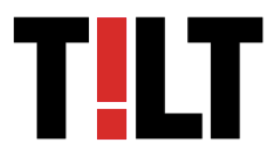
With team members across the country and around the world, we at T!LT have turned remote work into an art form. We were doing it before it was cool, if “cool” could be redefined as “necessary for the health and safety of everyone involved.”
Now, everybody’s doing it. It’s so passé. It also doesn’t look like it’s going to be changing anytime soon. Not everyone is having an easy time of it, and that’s okay. As a species, we adapt, some better than others. Humanity is constantly evolving but there will always be those individuals who are content getting left behind watching cable TV instead of enjoying seemingly endless streaming options. To each their own. But, at T!LT, we’ve been doing this whole “remote work” thing long before it was a gleam in the weary, multitasking eyes of all you whippersnappers.
So pull up the same chair you’ve been sitting in for the last six months, make yourself comfortable, and learn from the hard-earned wisdom of Old Man T!LT.
Remote Control, Part 1: Admiring, And Hiring, From Afar
Even when you’re meeting a candidate in person, it can be hard to know if they’ll be a perfect fit. They may look great on paper, but will their qualifications guarantee quality work? Will they fit in with the company culture? Or, to put it in terms Golden Girls fans will understand, will a candidate be a Blanche when what you really need is a Dorothy? Getting to know someone can be tricky; getting to know them online can be trickier.
The Remote Interview: Or, How I Learned To Stop Worrying And Love The Screen
It used to be you could tell a lot about a person from the way they walked into a room. A firm-but-not too-firm handshake gave you a pretty good idea of a person’s character before they even answered a single question.
Interviewing nowadays means you won’t be in the same room as your prospective hire. You’ll be staring at a digital facsimile of them on an LCD display. But there’s still a lot you can discover about them.
Looking For Mr. Softee: Soft Skills And Remote Work
Whether you’re looking for a CFO, a middle manager, or someone to fill an entry-level position, you’re going to get a lot of qualified applicants. People are hungry for work; it’s like The Cannonball Run out there in the job market. (If you don’t know what The Cannonball Run is, Google it. You’re welcome.)
Many candidates may look like they’ve got the chops, and in normal times a few might be shoo-ins based on their résumés alone, but these aren’t normal times, friends. Normal has gone the way of Beanie Babies and Tamagotchis.
You need a candidate who also has soft skills. Can they manage their time well? Do they have enough self discipline to avoid home distractions? Can they troubleshoot technical issues on their own? And perhaps most importantly: do they have great communication skills? People can come across very differently on Zoom than they do in person. Make sure you use the interview to discover just how well your applicant’s job skills make the leap to the world of remote work. And in this new digital world, just assume everybody on the other end of that Zoom call is wearing pants; don’t ask, just assume.
Holding Out For A Hero: Fighting Back Distractions
There’s no getting around it: working from home means managing your distractions. A lot of people are pulling double duty. They may be supervising their kids’ virtual schooling, for example, while working overtime to be on top of their jobs. (More on that overtime later.)
But you know who else pulls double duty? Superheroes. Peter Parker worked at the Daily Bugle when he wasn’t swinging around the city as Spider-Man. Clark Kent reported for the Daily Planet when he wasn’t chillin’ at the Fortress of Solitude. They both managed to get their work done on time. What you need is a superhero’s mindset – one of the good guys, not like Homelander in The Boys.
When you’re interviewing a candidate, check out their surroundings. Even if all they have is a corner to work in, is it a dedicated workspace? Or are they sprawled out on the couch with the TV blaring in the background? Are they completely present with you, or are their eyes darting all over the place, looking at something more interesting that only they can see?
An applicant may be a star in the office, but the home office is a different world with its own challenges that need to be carefully managed. Don’t be afraid to bring this up in an interview; it’s smart to ask about the prospective hire’s work environment, what kind of distractions do they have and how are they currently or how do they plan to manage everything. Pay close attention to how they respond, you don’t want to miss a sign that they’re not ready for remote work. And remember, the best choice may not always be the obvious choice. As we all know, superheroes often conceal their true identities behind a deceptively mild-mannered façade.
Put ‘Em To The Test
When you hire someone for a remote position, you’re not going to be seeing them every day at the office. If they’re local, we suppose you could hover over them at their home, but that would a) undercut the whole social distancing, pandemic thing and b) be extremely creepy. (You don’t wanna be creepy.)
To know if your candidate is all they’re cracked up to be, assign them a smaller project that’s something they’d tackle in their prospective position. You’ll know pretty quickly whether they can handle it technically, whether they’re good communicators; and whether or not they’re able to commit to an objective and hit a deadline.
In short, a small test will tell you most of what you need to know about a new (remote) hire. That’s how the author of this blog post got their job. And it’s worked out pretty well so far.
Next Up: Smells Like Team Spirit

